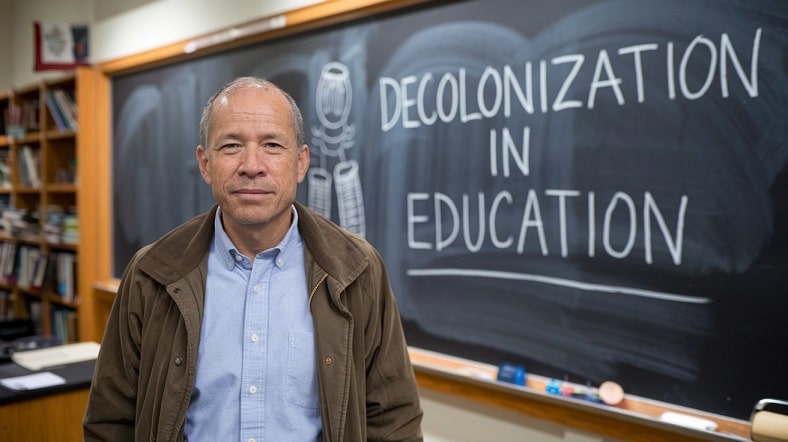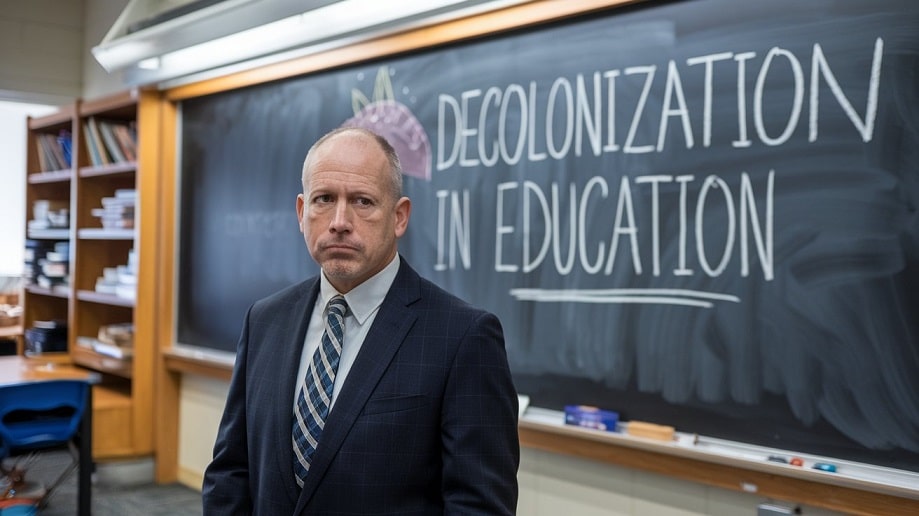Decolonization in education is an ongoing reform aimed at dismantling colonial ideologies that have historically dominated educational systems. In Minnesota, a cadre of committed professors is leading the charge to shift towards a more inclusive and equitable educational framework.
This article explores the initiatives and philosophies of Minnesota educators dedicated to championing decolonization in education. We delve into the background, significance, methods, and outcomes of these efforts.
Understanding Decolonization in Education
Decolonization refers to the process of deconstructing colonial ideologies and systems. In the context of education, it seeks to address the longstanding inequities that have affected marginalized groups, particularly Indigenous populations.
Key Aspects of Decolonization in Education
- Culturally Relevant Pedagogy: This approach values students’ cultural references in all aspects of learning.
- Revisiting Curriculum: A critical examination and reform of curricula to ensure inclusion of Indigenous history, perspectives, and contributions.
- Empowerment of Indigenous Voices: Incorporating the perspectives of Indigenous scholars, practitioners, and communities in educational discourse.
- Challenging Eurocentric Narratives: Recognizing and questioning the dominance of Eurocentric narratives in education.
The Role of Minnesota Professors in the Decolonization Movement
Minnesota is home to several professors who are at the forefront of the decolonization movement in education. Their contributions significantly impact how education is delivered in schools, universities, and communities.
Engaged Scholarship
Professors are increasingly engaging with local communities, especially Indigenous groups, to understand their needs and perspectives. This engaged scholarship fosters relationships that encourage mutual learning.
Notable Minnesota Professors
- Dr. L. A. C. Power – A prominent figure in educational reform, Dr. Power focuses on integrating Indigenous knowledge into K-12 curricula.
- Dr. R. William Anderson – Renowned for his research on culturally sustaining pedagogy, Dr. Anderson emphasizes the importance of maintaining cultural identities in educational settings.
- Dr. Julie A. Becker – A leader in decolonial methodologies, Dr. Becker utilizes participatory action research to assess and revise educational practices.
Impact of Decolonization in Education
The shift towards decolonization in education is multi-faceted and impacts various stakeholders.
Benefits for Students
- Enhanced Cultural Awareness: Students gain a deeper understanding of diverse cultures, fostering empathy and respect.
- Elevated Academic Engagement: A curriculum that resonates with students’ backgrounds fuels their interest and drive for learning.
- Improved Performance: Inclusive education often leads to better academic outcomes, particularly among marginalized students.
Transformation of Educational Institutions
- Curriculum Changes: Many institutions are revising curricula to reflect decolonized perspectives.
- Policy Revisions: Schools and universities are revising policies to create more inclusive environments.
- Increased Community Involvement: Educational institutions are forming partnerships with local communities, enabling a co-constructed learning environment.
Challenges to Decolonization

While the movement towards decolonization is promising, several challenges persist.
Resistance from Academic Institutions
Many educational institutions still cling to traditional Eurocentric curricula and methodologies. This resistance can manifest in various forms, such as:
- Institutional Inertia: Existing systems are often slow to change.
- Lack of Funding: Implementing new curricula and methodologies requires financial investment, which may not be readily available.
Misunderstandings of Decolonization
Some may interpret decolonization as merely a matter of adding diverse content to curricula rather than fundamentally rethinking how education is delivered. This misunderstanding can lead to superficial changes that don’t yield the intended impacts.
Equity of Voice
Decolonization requires that Indigenous and marginalized voices are not just included but also prioritized. Achieving this equity in voice can be challenging when institutional hierarchies favor dominant voices.
Practical Approaches to Decolonization in Education
Professors in Minnesota are employing practical strategies to enact decolonization in their educational practices.
Curriculum Development
Developing a decolonized curriculum involves:
- Inclusive Content: Integrating Indigenous literature, history, and languages.
- Collaboration with Indigenous Scholars: Partnering with local Indigenous leaders and educators for curriculum design.
Pedagogical Techniques
- Culturally Sustaining Pedagogy: Adopting teaching methods that seek to sustain and nurture students’ cultural identities.
- Experiential Learning: Engaging students in hands-on learning through community involvement and place-based education.
Professional Development
Educators must equip themselves with the knowledge and tools necessary for decolonization:
- Workshops: Conducting regular training sessions focused on decolonization methodologies.
- Peer Learning Communities: Establishing support networks among educators to share best practices.
Analyzing the Outcomes of Decolonization Efforts
The outcomes of decolonization initiatives can be examined through various lenses.
Academic Performance
Research shows promising trends in academic performance among students who engage with a decolonized curriculum. Data from the Minnesota Department of Education indicates:
| Year | Average Math Scores | Average Reading Scores |
|---|---|---|
| 2020 | 75 | 72 |
| 2021 | 78 | 76 |
| 2022 | 80 | 79 |
Student Satisfaction
Surveys conducted with students indicate a positive shift in attitudes towards education when curricula are decolonized. Key findings include:
- 85% of students reported a greater appreciation for their cultural heritage.
- 78% felt more engaged in classroom discussions.
- 82% believed that learning about diverse perspectives enriched their education.
Concluding Thoughts
The movement towards decolonization in education led by Minnesota professors represents a significant step towards creating equitable and inclusive educational systems. This effort not only benefits Indigenous students and communities but enriches the educational experience for all learners.
By challenging long-standing colonial narratives, revising curricula, and engaging with communities, Minnesota educators are setting the stage for a transformative evolution in education. However, the journey is just beginning, and continued efforts will be necessary to navigate the complex challenges that lie ahead.
The Path Forward
For Minnesota professors and educators everywhere, the following strategies can enhance ongoing decolonization efforts:
- Advocacy for Policy Change: Engage in policy discussions at the institutional and governmental levels to support decolonization.
- Continuous Learning: Stay informed about new research and best practices in decolonization education.
- Collaboration with Allies: Build networks with other educators, both in Minnesota and beyond, to share resources and strategies.
By remaining committed to the goals of equity and inclusion, educators can fundamentally reshape the landscape of education for future generations.
In summary, the ongoing efforts led by Minnesota professors to champion decolonization in education not only have the potential to transform educational practices but also to foster a deeper understanding and appreciation of cultural diversity. Through their dedication to inclusivity and community engagement, they are paving the way for a brighter, more equitable future in education.

Mark Joseph is a professional writer at Style Magazine US and has experience of more than 5 years in writing news and style articles.

